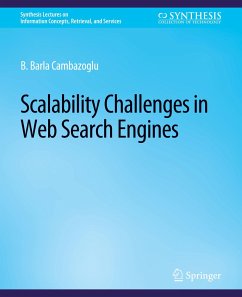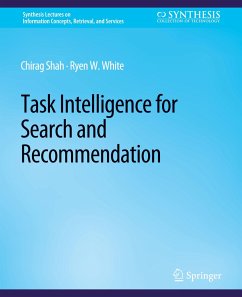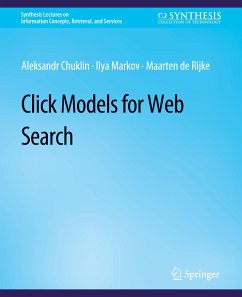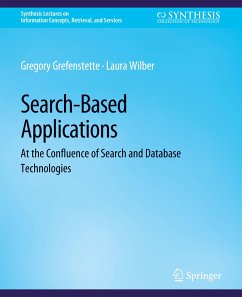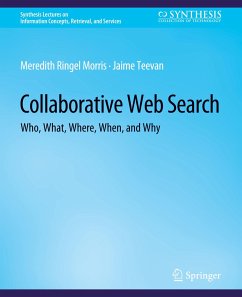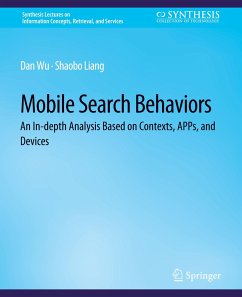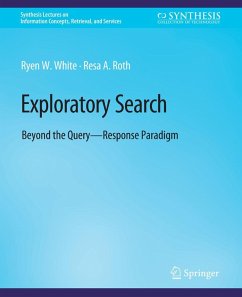
Children's Internet Search
Using Roles to Understand Children's Search Behavior

PAYBACK Punkte
0 °P sammeln!
Searching the Internet and the ability to competently use search engines are increasingly becoming an important part of children's daily lives. Whether mobile or at home, children use search interfaces to explore personal interests, complete academic assignments, and have social interaction. However, engaging with search also means engaging with an ever-changing and evolving search landscape. There are continual software updates, multiple devices used to search (e.g., phones, tablets), an increasing use of social media, and constantly updated Internet content. For young searchers, this can req...
Searching the Internet and the ability to competently use search engines are increasingly becoming an important part of children's daily lives. Whether mobile or at home, children use search interfaces to explore personal interests, complete academic assignments, and have social interaction. However, engaging with search also means engaging with an ever-changing and evolving search landscape. There are continual software updates, multiple devices used to search (e.g., phones, tablets), an increasing use of social media, and constantly updated Internet content. For young searchers, this can require infinite adaptability or mean being hopelessly confused. This book offers a perspective centered on children's search experiences as a whole instead of thinking of search as a process with separate and potentially problematic steps. Reading the prior literature with a child-centered view of search reveals that children have been remarkably consistent over time as searchers, displaying the same search strategies regardless of the landscape of search. However, no research has synthesized these consistent patterns in children's search across the literature, and only recently have these patterns been uncovered as distinct search roles, or searcher types. Based on a four-year longitudinal study on children's search experiences, this book weaves together the disparate evidence in the literature through the use of 9 search roles for children ages 7-15. The search role framework has a distinct advantage because it encourages adult stakeholders to design children's search tools to support and educate children at their existing levels of search strength and deficit, rather than expecting children to adapt to a transient search landscape.



